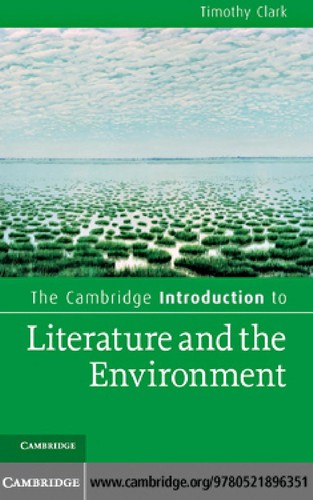254 pages
English language
Published 2011 by Cambridge University Press.

254 pages
English language
Published 2011 by Cambridge University Press.
"Environmental criticism is a relatively new discipline that brings the global problem of environmental crisis to the forefront of literary and cultural studies. This introduction defines what ecocriticism is and provides a set of conceptual tools to encourage students to look at the texts they're reading in a new way"--
"The degrading environment of the planet is something that touches everyone. This book offers an introductory overview of literary and cultural criticism that concerns environmental crisis in some form. Both as a way of reading texts and as a theoretical approach to culture more generally, 'ecocriticism' is a varied and fast-changing set of practices which challenges inherited thinking and practice in the reading of literature and culture. This introduction defines what ecocriticism is, its methods, arguments and concepts, and will enable students to look at texts in a wholly new way. Boxed sections explain key critical terms and contemporary debates …
"Environmental criticism is a relatively new discipline that brings the global problem of environmental crisis to the forefront of literary and cultural studies. This introduction defines what ecocriticism is and provides a set of conceptual tools to encourage students to look at the texts they're reading in a new way"--
"The degrading environment of the planet is something that touches everyone. This book offers an introductory overview of literary and cultural criticism that concerns environmental crisis in some form. Both as a way of reading texts and as a theoretical approach to culture more generally, 'ecocriticism' is a varied and fast-changing set of practices which challenges inherited thinking and practice in the reading of literature and culture. This introduction defines what ecocriticism is, its methods, arguments and concepts, and will enable students to look at texts in a wholly new way. Boxed sections explain key critical terms and contemporary debates in the field with 'hands-on' examples and comparisons. Timothy Clark's thoughtful approach makes this an ideal first encounter with environmental readings of literature"--